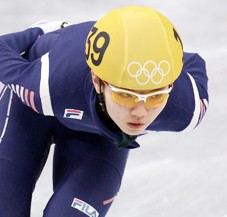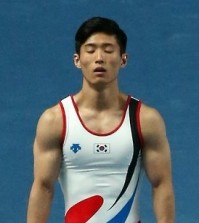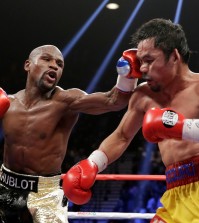- California Assembly OKs highest minimum wage in nation
- S. Korea unveils first graphic cigarette warnings
- US joins with South Korea, Japan in bid to deter North Korea
- LPGA golfer Chun In-gee finally back in action
- S. Korea won’t be top seed in final World Cup qualification round
- US men’s soccer misses 2nd straight Olympics
- US back on track in qualifying with 4-0 win over Guatemala
- High-intensity workout injuries spawn cottage industry
- CDC expands range of Zika mosquitoes into parts of Northeast
- Who knew? ‘The Walking Dead’ is helping families connect
Shim Suk-hee poised to deliver another gold
By Kwon Ji-youn
It seems Shim Suk-hee has finally broken in her Olympic skates.
The 17-year-old prodigy added a gold medal to her silver on Tuesday (KST) in a dramatic win over the Canadian, Italian and Chinese teams in the ladies’ 3,000-meter relay, cementing her status as the new face of the country’s proud short-track speed skating team. She played first fiddle to the team’s first-place finish, outskating a determined Chinese skater in the last lap to clock four minutes 9.498 seconds.
Prior to the Olympics, the media had elevated expectations for Shim, with the more optimist journalists predicting she would bring home at least three gold medals from Sochi. So it was understandable that Shim looked rather disappointed that her first Olympic medal was silver, finishing behind China’s Zhou Yang in the women’s 1,500 meters last week.
But after her dramatic finish in the relay final clinched Korea’s first short-track gold in this Olympics, Shim now looks like an athlete who has fully got her confidence back. She will be aiming for gold again in the upcoming 1,000-meter event. While the 1,000 meters hasn’t been Shim’s strongest event, parity rules the field of women short-track skaters now and she considers herself a contender.
Korean hopes for a historic medal haul at Sochi, which the country sees as a build-up to the 2018 PyeongChang Games, already seems to be dashed. The country’s performance in short-track speed skating has been below expectations as its athletes had won a staggering 19 gold medals in the sport from the 1992 Albertville Games through the 2010 Vancouver Games.
The men’s team has been shut out of the podium so far, a result of several mistakes and collisions. Lee Ho-suk crashed with four laps left in the 5,000-meter relay, while Sin Da-woon hit the ice during the 1,500-meter semifinals, taking compatriot Lee Han-bin with him. Sin and Park Se-yeong qualified for the 500-meter quarterfinals, Tuesday, but neither are contenders for the podium.
There are observers who wonder whether Korea’s declining dominance in short-track skating is connected to the outdated way it picks and trains athletes for the Olympics.
The Korea Skating Union (KSU) has been in hot water for its rumored factionalism and corruption. The controversy reached a new high when former Korean short-track great Ahn Hyun-soo took Russian citizenship and the name Viktor after he was left off the Vancouver Games national team.
For selection to the national team, skaters race just once ― separately, not together ― and are ranked based on times, a method very much dependent on that day’s conditions. Consequently, Vancouver gold-medalist Lee Jung-soo was left off the team.
Korea’s women athletes have been doing much better. Speed skater Lee Sang-hwa won the country’s first gold medal in the 500-meter event, and Park Seung-hi followed up with a bronze in short-track. Korea’s chances for additional gold are also up to the women ― Shim, in the 1,000-meter, and figure skating legend Kim Yu-na.
It’s not unlikely. Shim placed first in three of four 1,000-meter events at this season’s ISU Short-track Speed Skating World Cup. Short-track is a capricious sport, but should Shim perform the way she did in the relay, victory seems within the realm of possibility.
Shim, ranked first in the world, said in an interview after winning the silver that she was “sorry for not living up to the public’s expectations.” But it may have been the silver she had to settle for that pushed her to give that last lap in the 3,000-meter relay all she had.
The logic behind the hot hand fallacy is that an athlete’s perception shifts after one success. Shim, who has recovered confidence after the relay, may realize this phenomenon on Saturday at 1:44 a.m. and bring home what may become the country’s last gold.
















